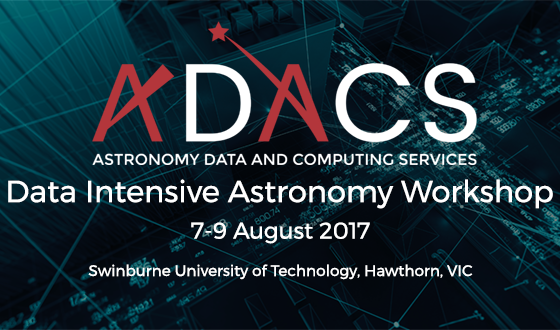
ADACS Data Intensive Astronomy Workshop – Melbourne 7-9 August 2017
Recent and planned advances in astronomical observational and simulation facilities are moving astronomy toward a new data-intensive era where “big data” is the norm rather than an exception. While such facilities will provide astronomers with unprecedented levels of accuracy, coverage, and resolution, the increases in dataset size and dimensionality will pose serious computational challenges for most of the current astronomy data analysis and visualisation tools.
This workshop will focus on the tools and platforms needed to enable discovery in the data-intensive era. We will focus this year on the following key themes:
- HPC and Cloud Computing in Astronomy.
- Machine learning applications in Astronomical Data Analysis and Transient Detection.
- Scientific Visualisation in Astronomy.
- Data intensive reduction pipelines and tools.
- Data intensive eResearch platforms in Astronomy.
The first two days of the program will include invited talks, contributed talks and BOF sessions. The aim is to encourage communication between software experts and astronomers to meet the big-data challenges in Astronomy. The last day will focus on the All-Sky Virtual Observatory (ASVO) project and the eScience gateways.
The workshop will be hosted by Swinburne Universtiy of Technology.
Key Dates:
- 14th July 2017 – Pre-registration and Abstract submission closes.
- 14th July 2017 – Attendees registration closes.
- 20th July 2017 – Program Release
- 7th-8th August 2017 – Data Intensive Astronomy Workshop
- 9th August 2017 – ASVO and eScience Gateways workshop
This workshop is sponsored by the Astronomy Data and Computing Services (ADACS) initiative. ADACS is funded under the Astronomy National Collaborative Research Infrastructure Strategy (NCRIS) Program via Astronomy Australia Ltd (AAL).

